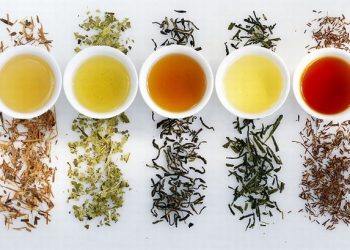For years women have been flourished with the benefits embedded behind breast feeding. However, the current generation seems to do away with breast-feeding slowly.
Most mothers these days are quite seemingly found to be alternating for an easier and less painful approach by opting for powdered milk. Mothers who have opted for this effortless way are depriving their newborns from the amazing benefits of breast milk.
Breastfeeding is by far the most safe, cost-effective, environmentally sustainable way to ensure a nutritious beginning in life for all children, rich or poor.
There is indeed a wealth of information that breastfeeding is essential for both the mother and the infant.

Reduce Babies’ Risk Of Contracting Diseases & Allergies
Breast milk is a baby’s first vaccine, fortifying the immune system and warding off infections. It enhances IQ and memory while also reducing the risk of metabolic diseases like diabetes and obesity later in life, implying long-term health benefits. It’s extremely important for the mother to feed the baby with her first produce.
The first milk is colostrum and it contains a lot of immunoglobulin A (IgA) and a ton of other antibodies needed for newborns.
Breast milk could further enhance their immune system by protecting the child from forming any allergies. Breastmilk is formulated with amazing nutrients such as stem cells, antibodies, white blood cells that contributes to superb natural healthy development of the baby.

The proteins in cow’s milk and soy milk formulas can trigger a reaction, whereas the proteins in human breast milk are easier to tolerate and digest by the infant.
Mothers Will Have A Lower Risk Of Suffering From Postpartum Depression
Postpartum depression (PPD) is a form of depression that can occur soon after a baby is born. Postpartum depression often occurs due to the changes in the mother’s body soon after delivery.
Breastfeeding mothers appear to have a lower risk of developing postpartum depression than mothers who wean early or do not breastfeed.
Many who experience postpartum depression soon after birth are more likely to have difficulty breastfeeding and are are only able to do so for a shorter period of time. Make sure to identify and inform your doctor right away if you’re experiencing any PPD symptoms.

Mothers should try to always keep themselves occupied with what they love doing and avoid dwelling on their worries.
Do not worry that you have become an overweight milk machine. Being able to bring life is a miraculous process, one being able to do so shall embrace it with utmost love and gratitude…
Helps The Uterus Contract Quicker and Aid With Better Healing
Throughout pregnancy, your uterus expands dramatically, from the size of a pear to nearly occupying the entire space in your abdomen. Your uterus goes through a phase called involution after birth, which helps it return to its original size.

This process is aided by oxytocin, a hormone that ascends during pregnancy. During labour, the body generates large amounts of oxytocin to help in the delivery of the baby and to reduce bleeding.
During breastfeeding, oxytocin levels increases thus it allows the uterus to return to its original size by encouraging uterine contractions and reducing bleeding.
It can also facilitate the bonding process with your new baby. The longer you breastfeed your baby, the quicker your body heals and the stronger the bond forms with the newborn.
Promotes Healthy Weight Gain For Babies
Breastfeeding tends to encourage a healthy weight gain in children and helps to prevent obesity. Breastfeeding for more than 4 months were linked to a reduced risk of a baby being overweight or obese. This would be due to the emergence of new gut bacteria.
Breastfed babies have much more healthy bacteria, that may have an adverse impact on fat storage HELPING WITH DIGESTION.
Breast-fed babies have higher levels of leptin in their bodies than formula-fed babies. Leptin is a hormone that controls hunger and fat accumulation.

Breastfed babies control their milk intake and they are better at eating till they are completely full. This attributes to better development of good eating habits since young.
Mothers Could Shed Of Pregnancy Weight Easier
Breastfeeding is invariably regarded as nature’s way of enabling new mothers in losing baby weight. Breastfeeding burns more calories, and after three months of lactation, you’ll probably notice a difference in fat burning relative to non-lactating mothers.
Breastfeeding burns 500–700 calories a day, that is about equivalent to skipping a small meal, a big snack, or 45–60 minutes of moderate-intensity physical activity.

Breast-feeding boosts your milk production and feeds your baby by burning fat cells stored in your body during pregnancy with calories from your diet. In the first year, women who breastfed for at least three months lost 1.5 kg more than those who formula fed their babies.
However, one should always watch what she consumes despite all the adverse benefits of breastfeeding in terms to losing weight.
Mothers should really be tenacious on the type of food consumed, prioritising on food that aids with better lactation and lesser on the oil and fat amount.

In mind of all the positive outputs that can be reaped from breast feeding, for mothers that are gifted with the luxury of producing a good flow of milk, you not only help your baby with these amazing benefits but also other babies of mothers’ who are unable to produce milk.
Instead of disposing of the excess milk you secrete, you may save it and pass it to the hospital for them to feed other babies that are sadly not able to consume their mother’s milk. A good deed is a great deed 🙂

Breastfeeding is advantageous to your baby for more than the first six months. The longer they consume breast milk, the more benefits they can gain, especially in terms of their health.
So, if you’re wondering when breastfeeding benefits end, the answer is that they last a lifetime. The longer you breastfeed, the more health benefits you will accrue.










